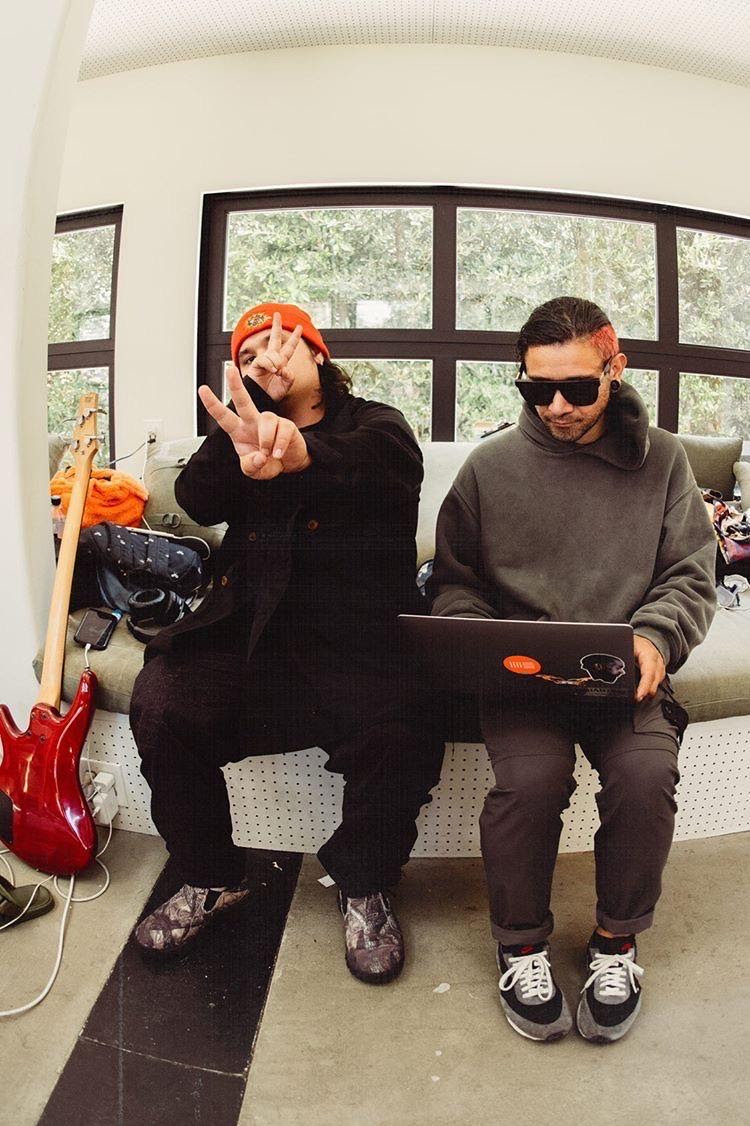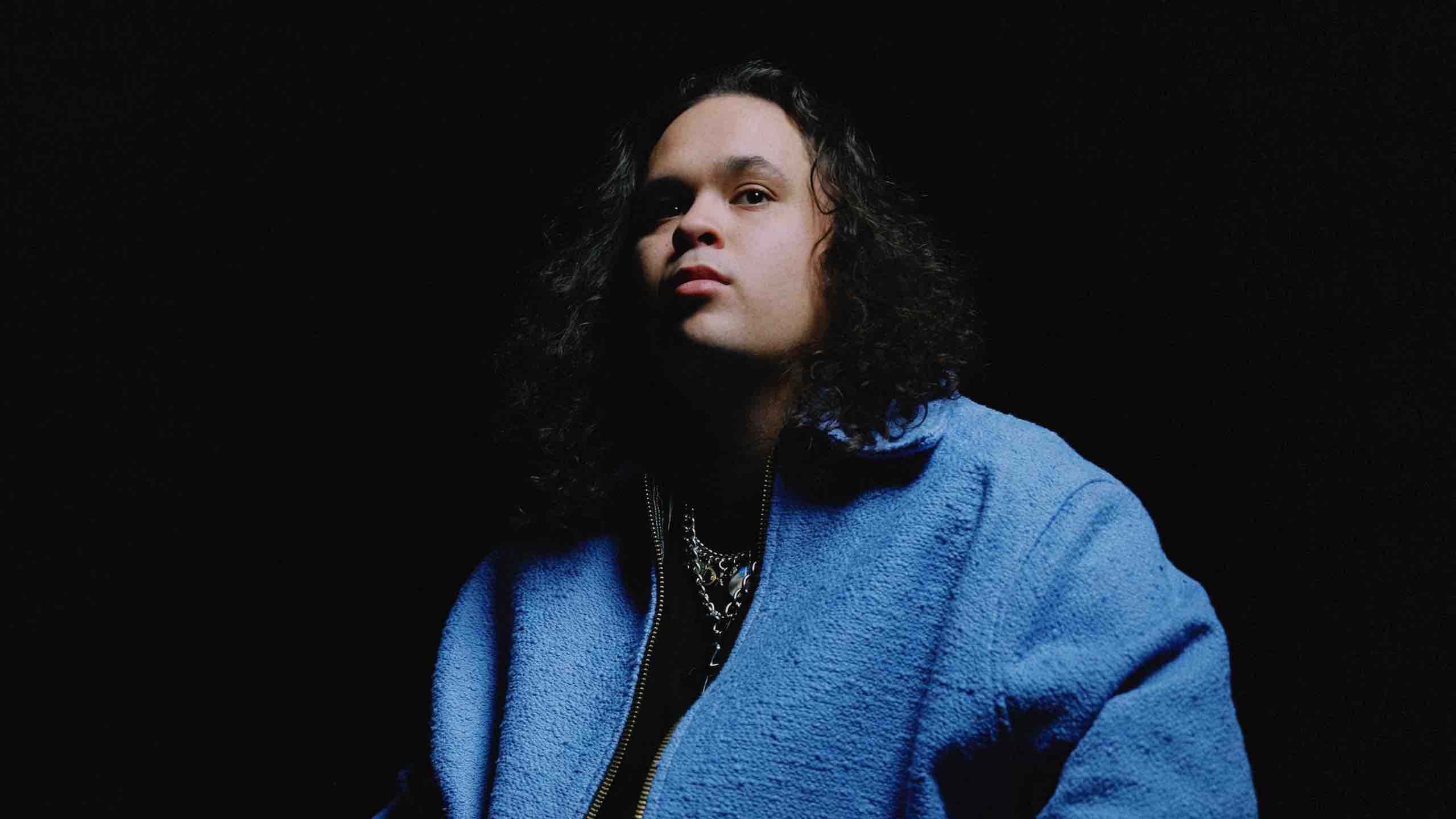“This is my whole life put into a project,” Zacari tells me, reflecting on Bliss, his debut album with Top Dawg Entertainment. Outside of two EPs and a handful of singles, the Bakersfield, California native has been relatively quiet since his contributions on Kendrick Lamar’s DAMN. thrust him into the international spotlight in 2018. “I feel like albums have deteriorated over the years, and it’s been more about quantity over quality. By letting go of that pressure [to drop projects]…this album can be more.”
Crafted out of studio sessions spanning the last five years, Bliss certainly takes the charge of being “more” seriously. The album takes its name from the proverb “ignorance is bliss,” zeroing in on the unknown of the dark space within a solar eclipse. Zacari describes the connection of the two as asking, “When your light is blocked, what space are you in in those moments?” The album reflects the TDE artist’s life changes over the past half-decade—namely moving to Los Angeles and trying to find his sound while navigating the loneliness that accompanies the pursuit of stardom.
Zooming in from LA the day after his 30th birthday, Zacari talks candidly about his spirituality, the patience needed to craft an album over half a decade, and how important observing his TDE labelmates has been for his artistic growth.
With the solar eclipse happening recently, do you feel like there’s a bit of divine intervention with that?
Definitely, bro. For it to land on my birthday, too. I really didn’t have any idea until this year. I feel like I’ve always been spoken to in signs that way—just visible signs throughout my life like that, reminders. For it to be on my birthday is pretty insane. We’ve had this eclipse concept [for the album] for about two years now, so pretty nuts.
Within the album, you allude to astrology and angel numbers quite a bit. How would you categorize those beliefs within yourself?
No matter what you believe in, if you see these numbers and you see these things aligning, it’s more about, like, “What are you thinking about in that moment? What’s going on?” It’s even less than some mythical belief that God is sending you a sign. It’s more like a moment you can take to check in with yourself. These numbers have followed me around—I’ve had 777 tatted on my arm with my brother since we were, like, 19 years old. It started just as a lucky thing, a flash tattoo. Then, throughout my life, I’ve had these moments where I see these numbers. Yeah, pivotal moments.
“I feel like albums have deteriorated over the years, and it’s been more about quantity over quality. By letting go of that pressure to drop projects, this album can be more.”
Are you religious?
I feel like my faith is constantly changing. I grew up in the Christian church, and I love my church and I love Christianity. But I don’t know, man, it’s hard to pick a religion and say that’s the one way to heaven. But yeah, I believe in a higher power. Even the stuff that [Ab-]Soul and Kendrick created—the HiiiPoWeR movement—and what they stood for is kind of what aligned me with the label, as well. There’s all these religions and beliefs in the world. Like, what do you get where the love’s at? That’s where I feel God is.
How do those beliefs inform your music?
I feel like music has helped me in such a powerful way. With talent comes purpose, I’ve always felt. With learning to play in church and seeing what I could do for other people and how it could heal and help people, that’s always been the core intention of everything I make.
What has album construction looked like over these five years?
I have nomad tendencies where I studio-hop. I meet great people, I stay up all night, I’ll go over to that studio, and then I’ll link up with new people. I was so hungry for this album to find its own sound and to develop over time. Yeah bro, the construction of it is so random—I’ll start some chords and pass it to Teddy [Walton], and then do a hook and then disappear on it for a year. Come back, I hear these drums I wanna add. I want to replace these samples with real music and real guitars. It really just moved with my life over the past few years, and being able to record and produce myself has really helped with that a lot, too.

“With learning to play in church and seeing what I could do for other people and how it could heal and help people, that’s always been the core intention of everything I make.”
Was it hard to be patient with this album?
Definitely, bro. Patience is something I had to learn with this album. But I’m also thankful for the features that have been able to carry me over, EPs that I put out. I feel like that’s always helped me feel better about taking my time with it. Even the people I look up to and I’ve worked with—just seeing all they put into creating an album and all the work it takes. The care and selection of it.
How much has the support from your fellow TDE artists meant to you as you’ve completed this album?
So much, man. Everything. They gave me opportunity. [ScHoolboy] Q would give me game. Kendrick used to let me sit in the studio and just observe. If it wasn’t for that, I would have no idea how to make an album.
How important do you feel that “student of the game” portion is?
Super important. I feel like going into any session as a student is beneficial. Even from when I first started recording, it was like, “OK, now I need to learn Ableton and how to produce; now I need to learn how to engineer myself; now I need to learn how to mix.” Everything that’s happening in the room, I’m paying attention to. How to wire things in the room to where I can go into the studio and be able to run the room by myself. Learning and soaking up every piece of it that you can is gonna help your sound, no matter what.
“Everything that’s happening in the room, I’m paying attention to... Learning and soaking up every piece of it that you can is gonna help your sound, no matter what.”
Do you have a specific time that sticks out as being especially impactful?
It was after DAMN. and during the Black Panther [soundtrack sessions], where Dot would have the room booked out 24 hours for weeks, so I would go in early, work, and record myself. And then I would sit in the room after and just watch them cook up. It was definitely that time where I was really soaking up all the game. And sessions with Terrace Martin, too, is where I learned a lot. He used to let me just pull up to the studio whenever and just sit in and work.
How was the transition to making your own sound?
It’s hard for me to sit around and wait for a beat to be sent. If I’m in my room at 8 p.m. and I have an idea in my head, I can get a rough [concept] of it on my own. You can get some chords and just sing it like that, and then explain to someone how you want the drums. I think that’s so important to the sound. Being able to execute an idea that’s in your head, even when nobody’s around. That’s gonna make the idea better. Even when it comes to doing my transitions and sequencing everything, I can load up all my songs in, and I can do that all myself—how do I want this song to go into the next one, and how can I produce around it so it’s smooth? I have a voice memo of my brother on the album. I can just put that in and chop it up myself.
I love the people I work with, but no one’s gonna care about your album more than you do. So to be able to do all those things yourself is beneficial to the album. FL







